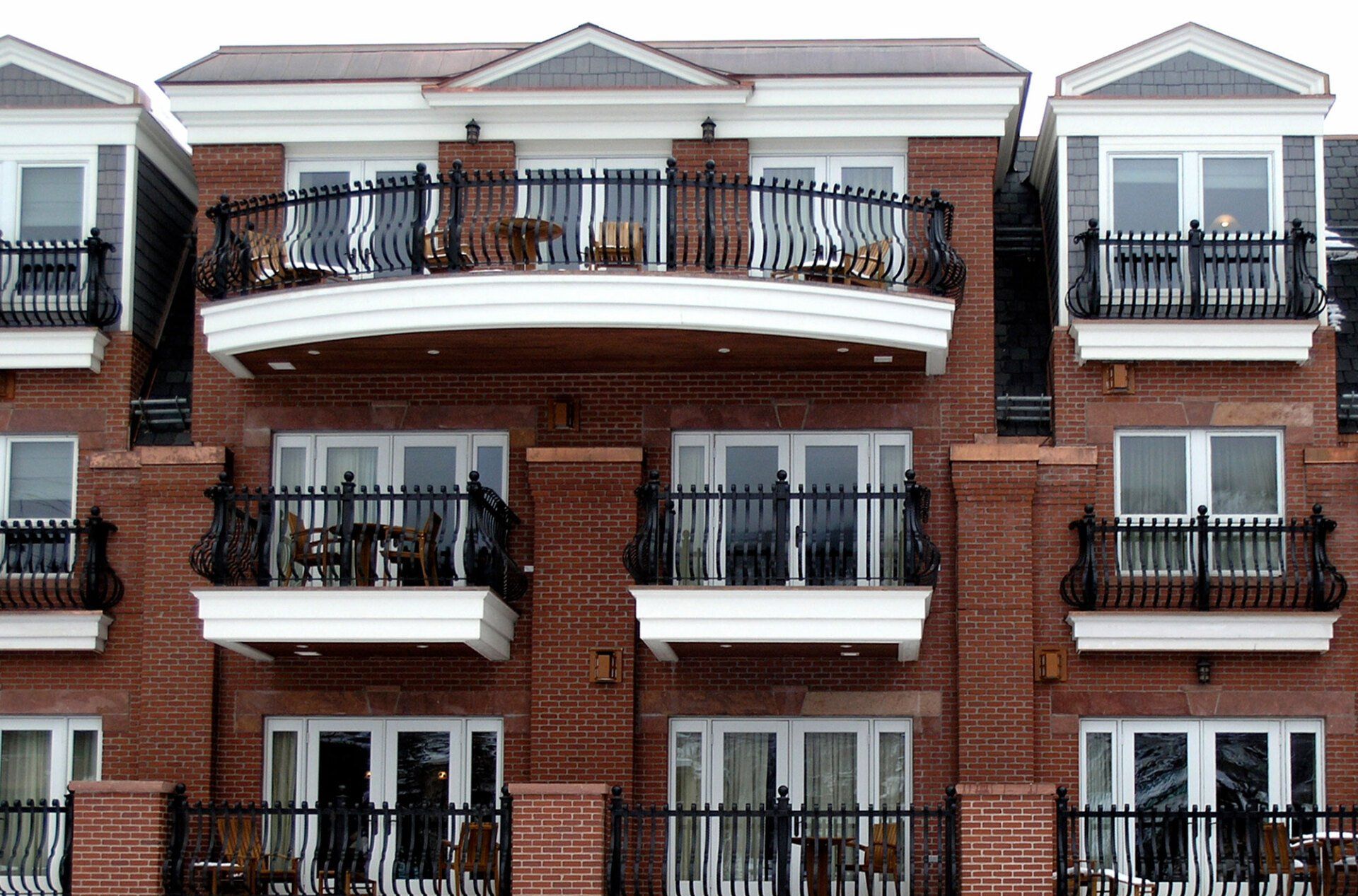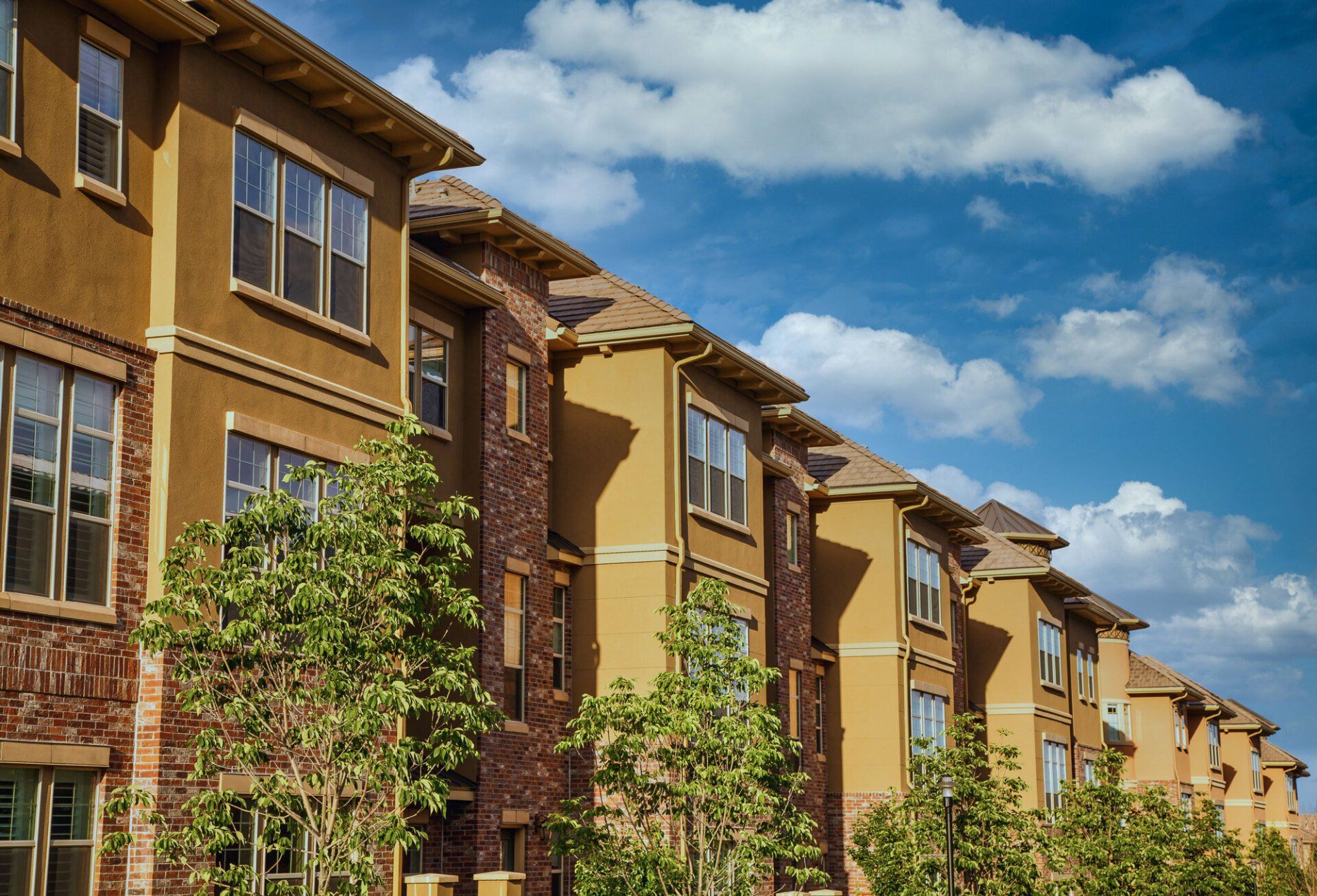Allen Associates Inc
For nearly 50 years, Allen Associates Inc has managed HOA's in both the residential and commercial "world". Our job is to help YOU manage one of your most prized investments.
ALLEN ASSOCIATES INC
PROPERTY MANAGEMENT
Allen Associates Inc has been a Colorado-based property management group serving Denver and Colorado's Front Range region since 1976. We combine our almost a half-century of experience, personal customer service, and the latest technology to make property management efficient, streamlined, and seamless. Our mission is to improve the quality of life in each and every property we manage.
We specialize in the management of both commercial and residential HOA communities throughout the Denver area, protecting and enhancing the value of the properties we manage. We provide responsive maintenance, facilitate access to critical paperwork, and improve communication.
Allen Associates Inc is a detail-oriented, focused, and efficient property management group. We can take care of it all, from meetings to compliance issues to bookkeeping and administrative services. We make it simple to facilitate payments and work to help our clients achieve their particular goals.
We encourage you to learn more about us and our services. Reach out to us for a no-obligation initial consultation. See why Allen Associates Inc has been a growing part of the Denver area for nearly five decades. Contact us today!
OUR SERVICES
-
MEETINGS
- Agenda Preparation
- Board Packet Prior to Meetings
- Conduct Meetings
- Facilitate Meeting
- Document "To Do" Lists
- Conduct Annual Meetings
- Facilitate Design Review Meetings
- Conduct Informational Meetings
- Conduct Special Meetings
-
ACCOUNTING SERVICES
- Budget Preparation
- Twenty Year Reserve Planning
- Financial Reporting
- Bank Account Management
- Booking Deposits
- Delinquency Follow-up
- Lien Filing & Release
- Accounts Payable
- Attorney Liaison
- Membership Records
- Title Transfer Processing
- CPA Liaison
- Attorney Liaison for Delinquencies
-
ADMINISTRATIVE SERVICES
- Association Record Keeping
- Correspondence Preparation
- Insurance Company Liaison
- Desktop Publishing
- Newsletters
- Mailings
- 24 Hour Emergency Response
- Covenant Logs & Letters
- Bid Solicitation
- Work Order Issuance
- Contract Liaison
- Design Review Request Processing
-
INSPECTIONS
- Inspection of Property
- Inspection Reports
- Photographic Documentation
- Cellular Phone Response
- Work Order Verification
- Pre-Bid Inspections
- Board Walk-Throughs
- Contractor Performance Monitoring
COMMUNITY DOCUMENTS
To view all important community documents including Rules, Declarations, CCR's, community policies, agendas, minutes, newsletters and much more, please sign into your Online Portal.
EDUCATION
-
CLARIFYING YOUR MANAGER'S ROLE
Your Association employs a highly-qualified professional Community Manager, and we think residents should know what the manager has-and has not-been hired to do. The manager has two primary responsibilities: to carry out policies set by the Board and to manage the Association's daily operations.
- Some residents expect the manager to perform certain tasks that just are not part of the job. When the manager does not meet those expectations, residents naturally are unhappy. Since we want you to be happy, we are offering a few clarifications to help you understand what the manager does.
- The manager is trained to deal with conflict, but he or she will not get involved in quarrels you might be having with your neighbor. However, if Association rules are being violated, the manager is the right person to call.
- While the manager works closely with the Board, he or she is an advisor-not a member of the Board. The manager can communicate your issues to the Board. If you have a concern, send a letter or e-mail directly to your Community Manager. If you need to see the manager, call and arrange a meeting. If a matter is so urgent that you need an immediate response, call Allen Associates main phone number at (303) 779-0789 during normal business hours, or if you have a Maintenance related emergency after hours, call the same number and follow the prompts to leave a message for the On Call Maintenance person. They will be paged and will return your call and handle your emergency. If it is a police, fire or health emergency,call 911.
- The manager is responsible for monitoring contractors' performance, but not supervising them. Contractors are responsible for supervising their own personnel. If you have a problem with a contractor, notify the manager, who will either handle the problem or forward your concerns to the Board. The Board will decide how to proceed under the terms of the contract.
- The manager inspects the community regularly, but even an experienced manager will not catch everything. Your help is essential. If you know about a potential maintenance issue, report it to the manager.
- The manager does not set policy. If you disagree with a policy or rule, you will get better results attending a Board Meeting or sending a letter or e-mail to the Board than arguing with the manager.
- The manager has a broad range of expertise, but he or she is not a consultant to the residents. Neither is he or she an engineer, architect, attorney or accountant. The manager may offer opinions, but don't expect technical advice in areas where he or she is not qualified.
- Although the manager is a great resource to the association, he or she is not available 24 hours a day-except for emergencies. Getting locked out of your home may be an emergency to you, but it is not an Association emergency. An Association emergency is defined as a threat to life or property.
-
COMMUNITY ASSOCIATION FUNDAMENTALS
Even though you live in an Association, you might be surprised how many of your neighbors-owners and renters alike-don't really understand the fundamental nature of common-interest communities. And we know that many others, including the media and government officials, lack a true understanding of the community association (or condominium) concept.
Community Associations Institute (CAI), a national membership organization that represents the best interests of common-interest communities like ours, developed 10 basic principles that answer three essential questions: What is the basic function of a community association? What are the essential obligations and expectations of homeowners? What are the core principles that should guide association leaders?
We're confident you will recognize your community while reading these principles.
- Associations ensure that the collective rights and interests of homeowners are respected and preserved.
- Associations are the most local form of representative democracy, with leaders elected by their neighbors to govern in the best interest of all residents.
- Associations provide services and amenities to residents, protect property values and meet the established expectations of homeowners.
- Associations succeed when they cultivate a true sense of community, active homeowner involvement and a culture of building consensus.
- Association homeowners have the right to elect their community leaders and to use the democratic process to determine the policies that will protect their investments.
- Association homeowners choose where to live and accept a contractual responsibility to abide by established policies and meet their financial obligations to the Association.
- Association leaders protect the community's financial health by using established management practices and sound business principles.
- Association leaders have a legal and ethical obligation to adhere to the Association's governing documents and abide by all applicable laws.
- Association leaders seek an effective balance between the preferences of individual residents and the collective rights of homeowners.
- Association leaders and residents should be reasonable, flexible and open to the possibility-and benefits-of compromise.
-
BE PREPARED IN CASE DISASTER STRIKES
If you think hurricanes, wildfires, tornadoes and floods won't happen to you or that you don't need to insure against these disasters, you're among the nearly half of U.S. homeowners and renters who lack the insurance coverage needed to deal with potential losses, according to the National Association of Insurance Commissioners (NAIC).
In a recent NAIC national survey, about 48 percent of homeowners and renters said they did not have an inventory of their possessions. Of those who reported having a checklist, 32% had not taken any pictures and 58% had no receipts validating the cost of their possessions. In addition, 44% of respondents acknowledged that they had not stored their inventory in a separate location.
HERE ARE SOME TIPS FROM THE NAIC TO HELP YOU PREPARE FOR DISASTERS:
- Take an inventory of your valuables and belongings. This should include taking photographs or a video of each room. This documentation will provide your insurance company with proof of your belongings and help to process claims more quickly in the event of disaster, flood, or theft.
- To enable filing claims more quickly, keep sales receipts and canceled checks. Also note the model and serial numbers of the items in your home inventory.
- As you acquire more valuables such as jewelry or antiques, consider purchasing an additional floater or rider to your policy to cover these special items. These types of items typically are not covered by a basic homeowner's or renter's insurance policy.
- Remember to include in your home inventory those items you rarely use such as holiday decorations, sports equipment and tools.
- Store copies of all your insurance policies in a safe location away from your home that is easily accessible in case of disaster. You may want to store your policies and inventory in a waterproof, fireproof box or in a safe location such as a bank safe deposit box.
- Consider leaving a copy of your inventory with relatives, friends or your insurance provider and store digital pictures in your e-mail or on a website for easy retrieval.
- Know what is and is not covered by your insurance policy. You might need additional protection (such as flood insurance, or special assessment insurance) depending on where you live. Make sure your policies are up to date. Contact your insurance provider annually to review and update your insurance policy.
- Keep a readily available list of 24-hour contact information for each of your insurance providers.
- Find out if your possessions are insured for the actual cash value or the replacement cost. Actual cash value is the amount it would take to repair or replace your home and possessions after depreciation, while replacement cost is the amount it would take to repair or replace your home or possessions without deducting for depreciation. Speak with your insurance provider to determine whether purchasing replacement coverage is worth the cost.
- Speak with your insurance provider to find out if your policy covers additional living expenses for a temporary residence if you are unable to live in your home due to damage from a disaster.
- Appraise your home periodically to make sure your insurance policy reflects home improvements or renovations. Contact your insurance provider to update your policy.
-
IMPORTANT LANDLORD INFORMATION
If you are an owner who leases your unit, we would like to make the leasing experience successful and positive for everyone by informing you of your responsibilities. This will help preserve your property value specifically and maintain the association's property value in general.
Your tenants may not be familiar with common-interest community living. Please take a few minutes to explain to them that living in a community association is very different from living in a rental apartment community. Specifically, your tenants, like all residents, are subject to the rules and regulations of the association, and it's up to you to educate them and see that they comply. The association will assist you in this area, but the responsibility lies with you. We recommend you provide your tenants with written copies of all policies and rules and advise them on the proper use of the association's facilities. You can obtain copies of these and other useful documents from your Association's website. Any violations of your tenants are your financial responsibility, so any violation fines will be YOUR responsibility.
We strongly recommend that you have a written lease agreement with your tenant. As a lessor (landlord) of a home in a community association, the lease you use must require tenants to comply with the Association's governing documents. In the event your tenant fails to comply with these documents, including the bylaws, or its rules and regulations, a representative of the association will first contact you in an attempt to remedy the problem. The association will also in certain situations, send you a copy of any notice sent to your tenant. You are ultimately the responsible party for your unit and the people in it. If your tenants do not follow the rules, it is the owner of the unit that will be fined in accordance with the rules and regulations.
We would also recommend that your tenant obtain a rental insurance policy.
If the tenant does not correct the violation, the association will contact you and expect you to remedy the violation using the recourse available to you through your lease agreement. If you are unable to correct the violation, the association may pursue appropriate legal action you.
The association asks that you provide the manager with the names and contact information of your tenants. This information will be used in case of emergency.
Follow these simple steps and you, the tenants and the Association will all have a positive Community Association living experience:
- Provide your tenants with copies of Association rules.
- Educate tenants about the need to follow Association rules, and see that they comply.
- Advise tenants on the proper use of Association facilities.
- Use a written lease agreement.
- Make sure your lease requires tenants to comply with all Association governing documents.
- Provide the Association with contact information for your tenants.
-
THE PURPOSE OF COMMUNITY ASSOCIATIONS
What is this entity that collects your assessments, mows the lawn and occasionally throws a party? One way to think of your Community Association is as a service organization that provides three types of services to owners and residents.
COMMUNITY MAINTENANCE SERVICES:
- Landscape Contract
- Snow Removal
- Trash Collection
- Newsletter production (if applicable to your property)
- Conducting HOA meetings
- Maintenance of Common Areas
- Competitively bidding the Maintenance work
GOVERNANCE SERVICES:
- Enforcing community Policies
- Fulfilling legal obligations
- Resolving disputes
- Administering design review policies
- Recruiting new volunteer leaders.
BUSINESS SERVICES:
- Paying all HOA bills
- Collecting assessments
- Collections processes
- Developing long-range financial plans
- Investing reserve funds
-
WELCOME FIRST TIME BUYERS
Few events in life are more exciting than buying your first home. Welcome to the Allen Associates, INC family. You are now a member of a Community Association. We are proud of the Associations we manage and trust you will contribute to the quality of your experience in your community. Here are a few tips and bits of information to help you make the most of Community Association living.
YOUR OWN SPACE
There is one important difference between renting and owning a home that you need to keep in mind. Unlike renting, your unit and its upkeep belong entirely to you. You are responsible for all maintenance for any part of your home that is used only by you or your family. So, when the faucet leaks, the first person to call is your favorite plumber, not the manager.
COMMON ELEMENTS AND ASSESSMENTS
Your community has a number of common areas and services. We oversee; the upkeep and maintenance of the common area grounds, this includes lawn care and snow removal, this ensures that these areas are attractive and enjoyable. The cost of maintaining these areas are paid for by your Community Association dues and/or assessments.
COMMUNITY RULES
Because many residents share the common areas, it is necessary to have a few basic rules and regulations so everyone can enjoy the community. If you do not have a copy of the community rules, please refer your to Association's website, it can be found on AllenAssociatesInc.com or contact your Community Manager at 303-779-0789.
MEMBERSHIP
When you bought your new home, you became a member of a Community Association. Membership entitles you to attend and observe Board Meetings and vote in Board elections. You may even want to consider running for a Board seat yourself. Your community thrives because residents volunteer for committee assignments and eagerly stand for Board elections. Get involved we need you.
Please contact your Community Manager for more information or if you have questions about the association.
YOUR ONLINE PORTAL
For more information
CONTACT US
Correspondence Only:
6140 S. Gun Club Rd,
Unit K6 #296,
Aurora, CO 80016
Payment:
YOUR Community Name
C/O Allen Associates Inc.
PO Box 95033
Las Vegas, NV 89193-5033
Contact Us
We will get back to you as soon as possible
Please try again later









